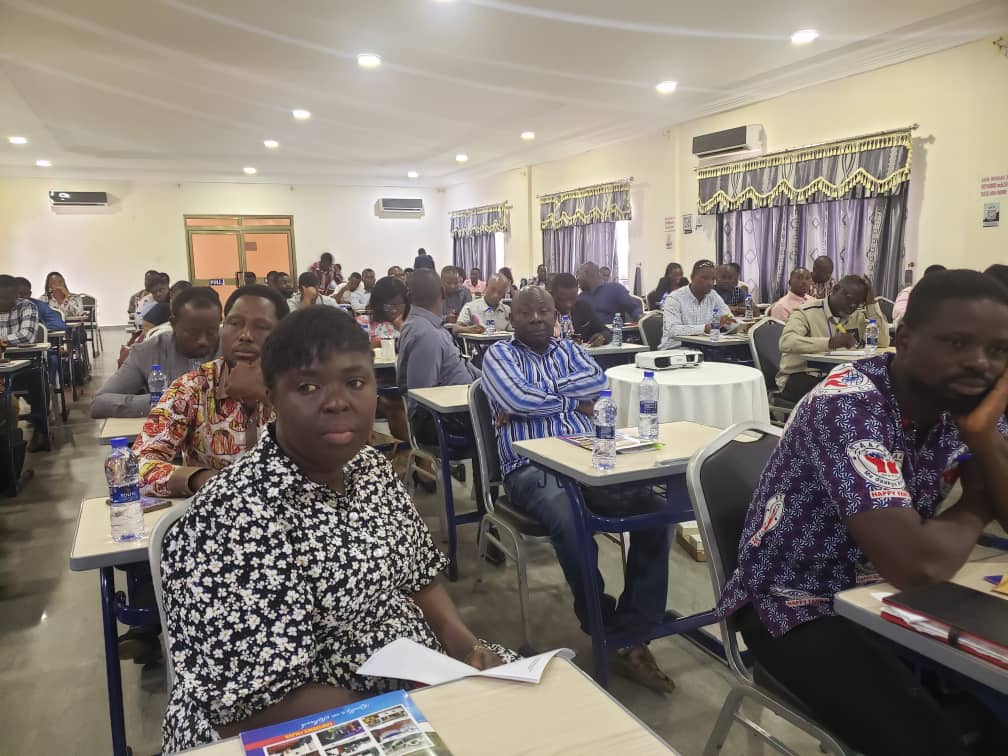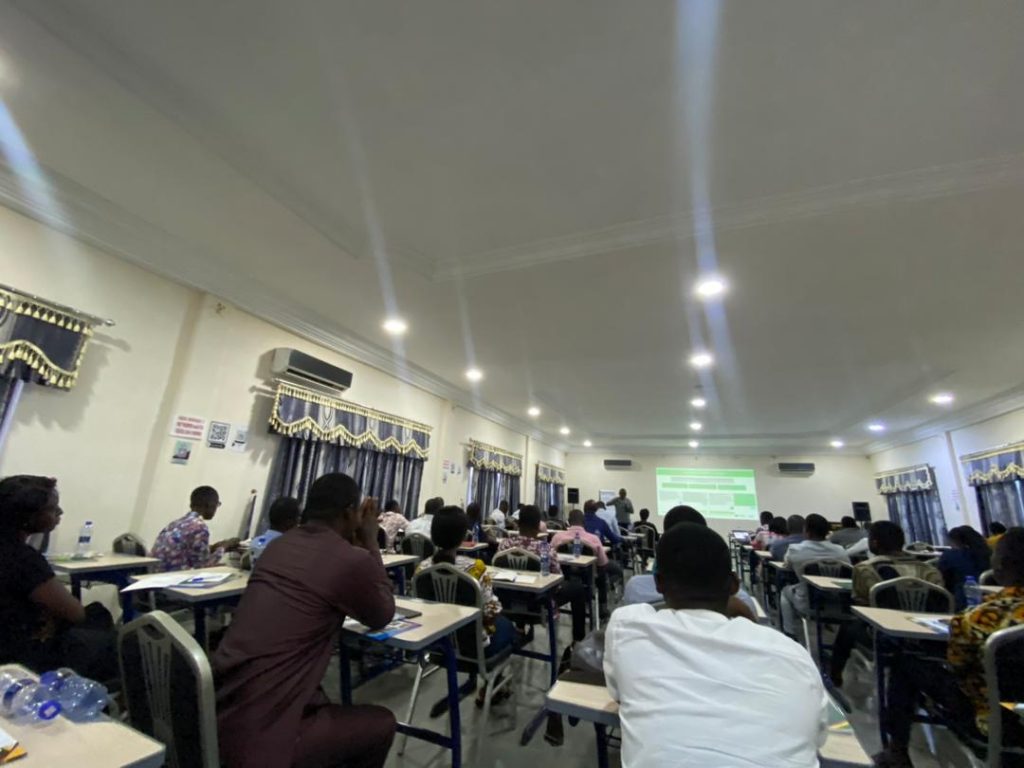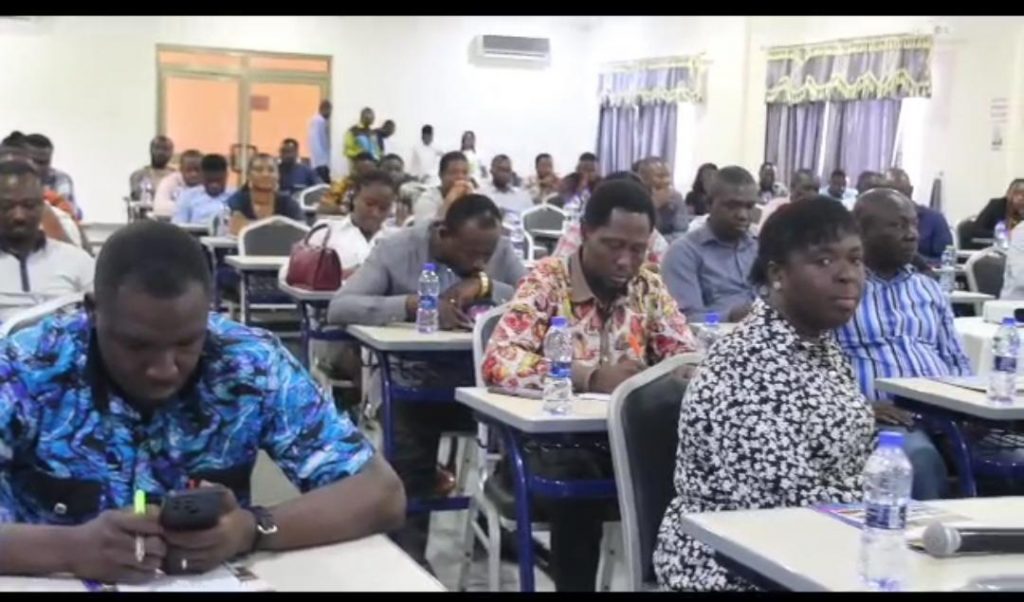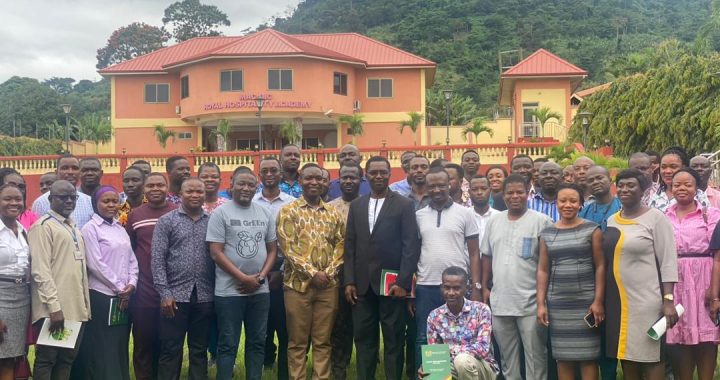The Ministry of Employment and Labour Relations (MELR) joined hands with the International Labour Organization, in partnership with the Eastern Regional Coordinating Council, to host a one-day sensitization and awareness workshop on the National Green Jobs Strategy. This event took place in Koforidua, with a primary goal of ensuring a seamless transition to the Green Jobs Strategy in Ghana. This transition aims to protect the livelihoods of Ghanaians and empower the workforce with the skills needed to harness the significant potential for creating quality jobs within the green or circular economy.

Mr. John Donkor, Chief Director of the Eastern Regional Coordinating Council, on behalf of the Eastern Regional Minister highlighted that the National Green Jobs Strategy was conceived to provide a structured framework, build capacities, and implement measures for the effective coordination of ongoing green initiatives. Mr. Donkor stressed the pivotal role of the sensitization workshop in enhancing participants’ comprehension of the National Green Jobs Strategy, thereby promoting job creation at the local level. He also emphasized the importance of integrating elements of the strategy into the Medium-Term Development Plans and Action Plans of the Municipal and District Assemblies (MMDAs) for the betterment of local communities.

Mr. Ernest Berko, Deputy Director responsible for Policy Planning, Monitoring, and Evaluation at the Ministry of Employment and Labour Relations, outlined the core objectives of the Green Jobs Strategy. These objectives encompass policy alignment, coherence, and coordination to maximize green job opportunities. Furthermore, they involve the development of employable skills, especially for youth, women, and Persons With Disabilities, to leverage existing and emerging green job prospects. Mr. Berko underlined the need for a harmonized implementation approach to maximize the interconnected and complementary effects of the various components of the Ghana Green Jobs Program, ensuring sustainable job creation.

Mr. Awudu Musa, Director at Standard Normal Variant (SNV), emphasized the significance of transitioning from current production methods that contribute to greenhouse gas emissions. He articulated that these methods have adverse effects on human health and the environment. Mr. Musa stressed the imperative of embracing this transition to shift from a brown economy to a green or circular economy. This shift not only positively contributes to global climate change mitigation but also reduces land degradation, promotes afforestation, decreases fossil fuel consumption by vehicles, and encourages more sustainable industrial production practices

SENSITIZATION AND AWARENESS CREATION WORKSHOP ON THE NATIONAL GREEN JOBS STRATEGY
Posted in Events, General News.
